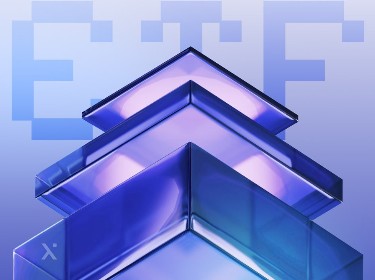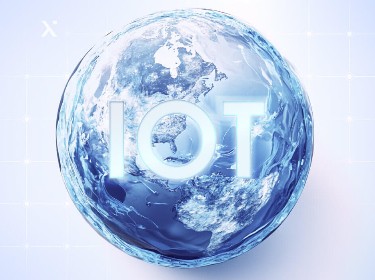Like previous technology shifts such as social media, mobile, and cloud, the metaverse could become a game changer. If you’re researching opportunities in this niche, a close look at metaverse development tools is a great way to start.
The metaverse refers to a 3D virtual universe that mimics aspects of the physical world and allows users to communicate and interact in the digital space.
Vendors, including tech giants Meta and Microsoft are already building solutions that can replicate user lives in digital worlds. Statista estimates that the number of users in the metaverse is projected to reach 2,633.0M by 2030. This will contribute to the development of new metaverse use cases and technologies.
If you plan to be one of the early adopters of metaverse technology, we recommend a deep dive into our list of metaverse development tools and frameworks.
Whether you’re an experienced metaverse developer or just starting your journey in the metaverse, our detailed video guide is designed to provide you with the thorough knowledge and resources you need to thrive in this exciting new realm.
Join us as we explore the metaverse development tools and frameworks that can turn your visions into immersive realities.
New to the metaverse concept? Take a look at our explanatory article on what the metaverse is all about
List of top 10 open-source tools for metaverse development
![]()
Despite the metaverse still being in its nascent phase, there are already plenty of tools that you can consider adopting for your future metaverse project.
Let’s take a look at the most promising metaverse development tools and technologies and see how they can assist you in developing your solution.
1. Ethereal Engine (XREngine)
Ethereal Engine, also known as XREngine, is a free and interoperable end-to-end framework for metaverse development. It is designed as a full-stack MMO engine that can be used to host events, make games, or showcase art.
XREngine allows anyone to build games and social experiences and link them together. To do this, it offers a modular set of open-source tools, such as 3D world creation, complete world editing, voice- and video-based communication, and user management.
Powered by JavaScript, Ethereal Engine provides scalable multiplayer infrastructure, which includes voice, video, expressive avatars, a visual editor, and portals between worlds.
Some of the most prominent tools and projects offered by Ethereal Engine include:
- Universal Volumetric — a cross-platform volumetric video codec
- AR & Geospatial Maps — help bridge physical and virtual worlds
- Blockchain-in-a-Box — Ethereum blockchain for bootstrapping virtual economies
- Digital Beings — provides an easy way for AI/AGI researchers to connect their code to digital worlds
- Unity XR Bridge — a bridge for the Unity Game engine and the social spatial web
- Harmony Client — an open-source Discord alternative with chat, friends, groups, parties, and streaming features
Key benefits
- Self-deployable and fully customizable platform with virtual worlds, avatars, and games
- Modular infrastructure, which encompasses the engine, server, client, and editor
- Deployable to iOS, Android, and desktop platforms
- Includes a variety of social features such as chat, groups, friends, moderation, and blocking
2. Webaverse
Webaverse is an open-source, browser-based metaverse engine that allows developers to build and host virtual worlds and gaming experiences on top of it. Companies can host their metaverse projects wherever they want but they need to have Node.js 17 or later available.
The team behind the Webaverse aims to shift the power from big tech companies to users and creators, and set the foundation of an open metaverse that can be accessed through free and open tools. Therefore, their metaverse engine is fully open-source and customizable.
A noteworthy advantage of Webaverse is that the system is powered in users’ browsers, and therefore accessible across a variety of devices, including VR headsets.
To showcase the full potential of their metaverse engine, the Webaverse team has built The Upstreet — an AI-based and NFT-powered multiplayer online game. Upstreet supports user-generated content that can be dragged and dropped into the game.
Key benefits
- Allows developers to build and host virtual worlds on top of its engine
- Browser-based and accessible across a variety of devices
- Real-life projects already exist that show the Webaverse in action
Want to engage in metaverse development? How about starting with the metaverse NFT marketplace?
3. JanusWeb
JanusWeb positions itself as an open-source web development framework for building social virtual reality experiences. You can use it to convert an existing 2D website into a 3D environment.
Powered by JavaScript and HTML, the framework allows developers to create immersive 3D environments for desktop, mobile, and VR devices. Currently, it provides Oculus Rift, Vive, GearVR, Cardboard and Daydream support via the WebVR API.
JanusWeb provides a plethora of JanusXR tools that help you incorporate immersive content. These include:
- Blender to JanusXR (FireVR) — a community-made Blender plugin with IPFS capabilities
- Unity to JanusXR — an official tool for taking content from Unity and porting it into the VR web
- Unreal Engine to JanusXR — an official tool for taking content from Unreal Engine and porting it into the VR web
- Maya to JanusXR — the official Maya to JanusXR conversion utility
- Stetchup to JanusXR — a community-made plugin that enables the conversion of skip files to the VR web
- Chrome Bookmarks to JanusXR — a tool for exporting your Chrome bookmarks to JanusXR
Key benefits
- Provides for real-time collaboration across all devices thanks to built-in networking
- Has gamepad support through the HTML5 Gamepad API
- Supports hand tracking peripherals, such as Oculus Touch, Leap Motion, and Vive controllers
- Supports popular 3D formats, including Collada, OBJ, and glTF
- Offers many customized use cases thanks to scriptable client
4. HyperCube
HyperCube is an open-source smart contract platform with high-performance computing power and data storage support for metaverse development as well as VR, AR, and AI applications.
HyperCube’s network is built on the Rust language based on the PoD consensus — a hybrid consensus of PoW (ETHash) and PoS (Dedication Formula). It determines blockchain network accounting privileges from multi-dimensional parameters, including network coupling, community participation, and time.
One of the current developments of HyperCube is HyperVerse — HyperCube’s vision of the metaverse. It’s an extended reality project that will seamlessly integrate the physical world with the digital universe.
Key benefits
- Has large-scale, multi-concurrent network computing and storage capabilities
- Suitable for building GameFi and DeFi projects
5. WebXR Device API
The WebXR Device API provides the interfaces that allow developers to build and host immersive VR and AR experiences on the web. It supports a wide range of AR/VR hardware, including, but not limited to, ARCore-compatible devices, HTC Vive, Daydream, Magic Leap One, Samsung Gear VR, Oculus Rift, and Microsoft Hololens.
The team behind the WebXR Device API envisions that its most common use cases will include large-scale games, 360-degree and 3D videos, 3D visualizations (e.g. shopping demonstrations), and artistic experiences.
Key benefits
- Provides support for both VR and AR on the web
- Compatible with fully-immersive 3D headsets that offer motion tracking, eyeglasses that overlay graphics atop the physical world, and more
- Renders 3D scenes to the chosen devices at the appropriate frame rate and can optionally mirror the output to a 2D display
- Enables the creation of vectors representing the movements of input controls
6. Open Metaverse Interoperability Group (OMI Group)
The OMI Group is focused on building protocols for identity, social graphs, and inventory with the ultimate goal of bridging virtual worlds. As of 2022, the project is in its early stages of development, so there is no official scope of work yet. However, the OMI Group has outlined the key areas they are looking into, which include:
- Identity
- Avatars
- Inventory / Trading Virtual Items
- 3D content
- Friends Lists / Social Graphs
- Portable Scripted Objects / Scenes
The startup claims that they are not directly building the metaverse. However, they hope to form a consensus that will turn siloed virtual worlds into a network of interoperable ones.
Key benefits
- The OMI Group has multiple subgroups that work on and contribute to specific parts of the project, for example, the gLTF Extensions Group, OMI Github Backlog Refinement, the UX Research Group, etc.
- Aside from technical work, the project is focused on creating a community of artists, developers, and innovators to explore and design virtual worlds
7. Blender
Blender is a free and open-source tool for creating 3D content. It supports the entire 3D pipeline, including modeling, rigging, simulation, animation, rendering, motion tracking, and game creation.
Blender was established before anyone even started talking about metaverse development tools. But since it is a tool for creating and manipulating 3D visualizations, it can be used to build 3D metaverse apps.
Key benefits
- Supports the entire 3D pipeline, from modeling to game development
- A community-driven project, enabling the public to make changes to the code base and add new features
- Cross-platform app development enables the solution to run on Linux, Windows, and Macintosh computers
8. Genies
Genies is an avatar ecosystem that comprises multiple avatars, spaces and venues, fashion, and collectibles. Genies established partnerships with Warner Music Group and Universal Music Group to serve as an official avatar of each company as well as digital goods NFT provider.
The platform has also started to offer avatar creator tools via a private beta, enabling users of every level of tech expertise to design their own avatars. As a result, you can easily create and customize your avatar, design avatar fashion collectibles, and build social experiences in web3.
Key benefits
- Has established a warehouse — a digital fashion marketplace where users can purchase digital items
- Allows users to easily customize each avatar and wearable in line with their aesthetic vision
- Creators have full ownership of their avatars and the right to commercialize them
9. Hologram
Hologram is an all-in-one platform that empowers you to create digital identities and virtual beings. Hologram’s consumer apps empower any NFT holder or beyond to create content, socialize, and live stream their motion-tracked virtual characters.
The platform enables you to build your brand on any video or gaming platform, including but not limited to Zoom, Twitch, and VR chat.
Key benefits
- Relies on the latest developments in machine learning, 3D, and web3, allowing users to create and engage with immersive virtual characters at scale
- Supports Google Meet, Discord Web, Slack Web, Microsoft Teams, and Gather
- Compatible with any desktop-based application such as Zoom or OBS (for streaming)
10. Microsoft Mesh
Microsoft Mesh can be used to help you create virtual experiences, build connections, share spaces, and collaborate from anywhere. The platform can be integrated into various apps bringing Mesh-enabled mixed-reality experiences to your organization through digital avatars.
The two characteristics of Microsoft Mesh are avatars and holoportation. Avatars are digital representations of real individuals that are employed for virtual meetings while holoportation refers to speakers who address a meeting using their lifelike 3D models.
Key benefits
- Supports PCs, tabs, and other devices and does not require VR/XR eyewear to access the metaverse
- Allows you to choose from hundreds of combinations to customize your avatar (physical attributes, wardrobe, accessories, etc.)
Check out our detailed guide on what it takes to build a metaverse project
Is it worth building a metaverse app?
![]()
Even though it is hard to predict when the metaverse will be fully implemented, many brands and consumers are already excited about its potential and have started taking the first steps towards turning this concept into real life.
For example, in one of their recent reports, McKinsey revealed that 59% of consumers are excited about transitioning their daily activities to the metaverse, while 57% of metaverse-aware companies claim they are early adopters. What’s more, 95% of business leaders expect that the metaverse will have a positive impact on their industry within 5-10 years.
According to Gartner, by 2026, 25% of people will spend an hour a day in the metaverse for activities such as work, education, shopping, and entertainment.
Beneath the hype, metaverse development continues, offering many interesting opportunities, including:
- New ways to engage with users, such as conferences in the virtual space, VR-based showrooms, virtual galleries, new marketing campaigns, and many more
- The possibility to rent or buy commercial spaces and build stores or showrooms for users to check out your products in the virtual world
- The opportunity to improve team collaboration by working together in metaverse workrooms
Metaverse development with PixelPlex
As the concept of the metaverse evolves, new metaverse development tools continue to appear. We keep an eye on all the latest advancements in the metaverse field, and would be glad to discuss them with you.
If you’re currently exploring possible business opportunities in the metaverse, check out our metaverse development services. With 11 years in blockchain development, we have helped hundreds of clients turn their ideas into real-life solutions.
Our NFT development company can also assist you with NFTs, augmented and virtual reality development, and much more.
Let’s keep in touch.
Disclaimer: The information provided in this article is for educational purposes only. It does not constitute advice or recommendations for investing in metaverse development frameworks or tools. Please seek professional advice before taking financial risks.




